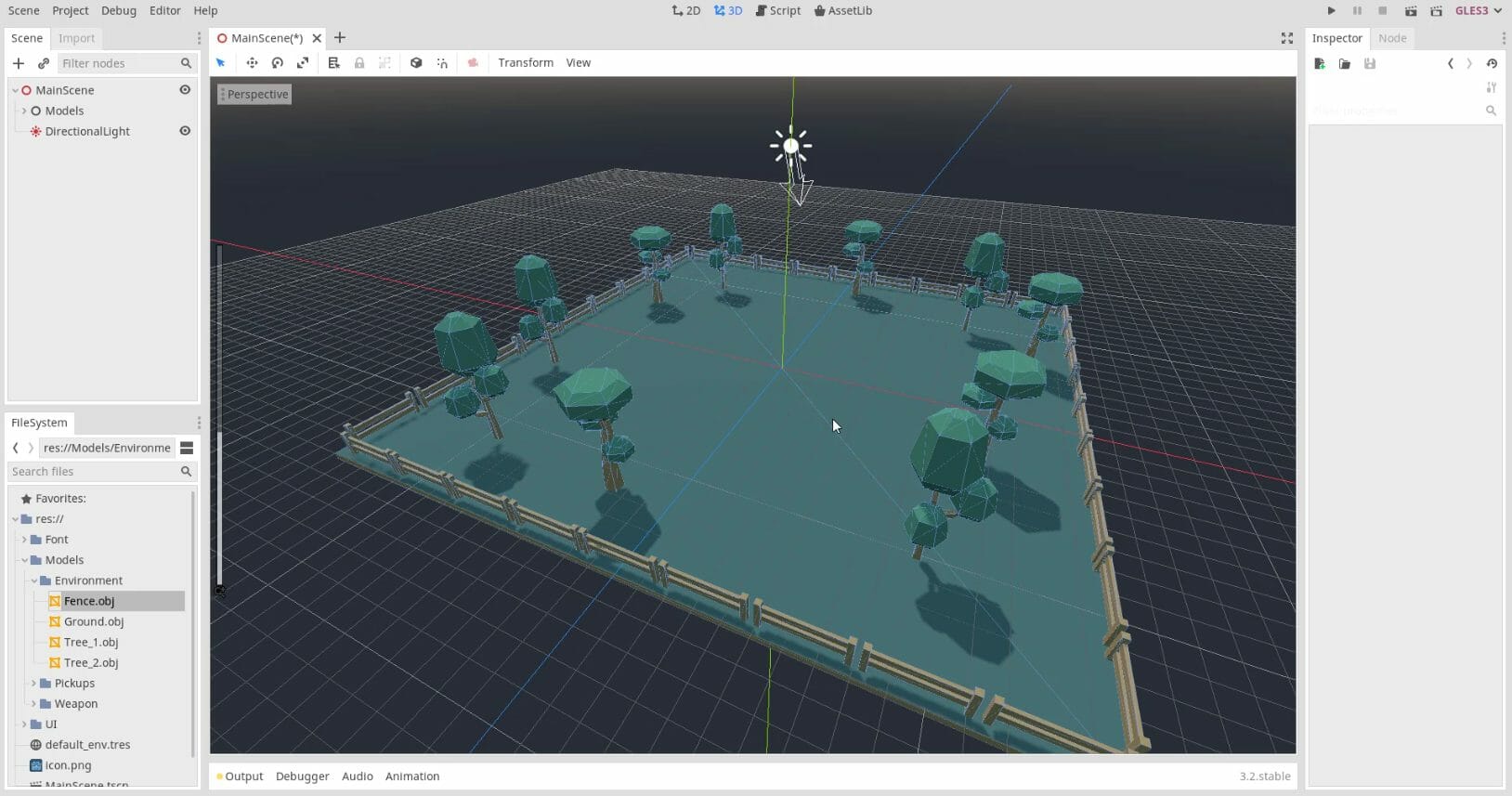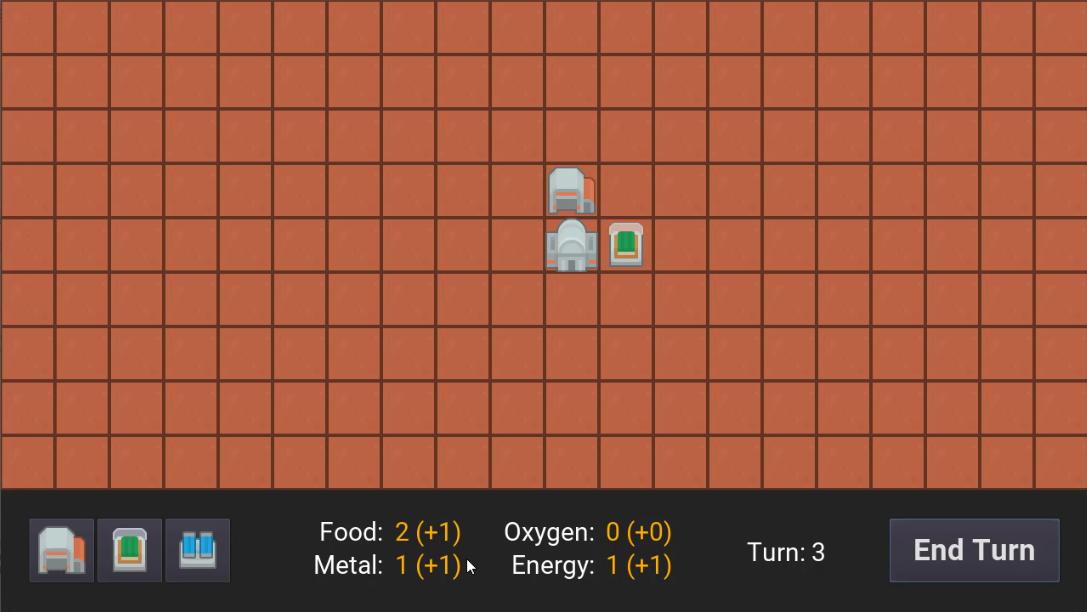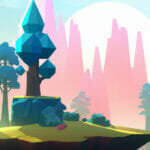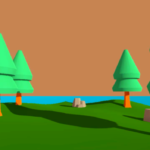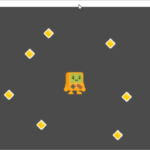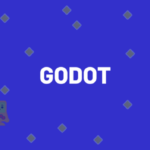While there are many game engines available, we want to talk about what is Godot and why it’s a fantastic choice to learn.
Godot has recently seen a rise in the game development scene and is quickly becoming a favorite of many game developers! However, just as many developers have never heard of Godot, or even know why they might want to use Godot over other popular engines like Unity or Unreal. After all, game engine choice is crucial as a first step when developing your games.
In this post, we’re going to walk you through in not only understanding what is Godot, but also how it can benefit you as a game developer!
Let’s dive in and discover this amazing, free engine.
Table of contents
What is Godot?
First released in 2014 by Juan Linietsky and Ariel Manzur, Godot is a cross platform game engine oriented towards both 2D and 3D game development. The game engine focuses on providing a well-rounded set of tools for development – including a built-in code editor, a graphics rendering engine, audio playback tools, animation tools, and more. Over the years, the engine has grown immensely to include even more core contributors – and also accepts help from the Godot community as well to further develop the engine.
However, there is more to what is Godot, so let’s dive into that.

Key Features
Let’s jump into some of the key features offered by the Godot engine – as this is also key to answering what is Godot.
As we unlock the mysteries of Godot in this guide, our Godot 4 Game Development Mini-Degree and Godot 3 Game Development Mini-Degree serve as excellent tools to dive deeper and offer hands-on experience in 2D and 3D game development. With practical step-by-step instructions and cross-platform game building capabilities, these comprehensive courses will not only illuminate key aspects of Godot for beginners and advanced developers alike but will also enable you to create an impressive portfolio of real Godot projects. With the vast opportunities available in the gaming industry, these resources pave the way for an enriching learning journey in Godot game development.
3D Graphics Support
As mentioned, Godot comes with many features needed for 3D graphics. This includes lighting systems, physics systems, material support (reflection, refraction, etc.), and even tools for post-processing effects. Further, the engine also supports more advanced graphics features such as shaders and particles, giving developers a full set of tools to customize their games.
Fully-Dedicated 2D Engine
Unlike other engines where 2D is achieved simply by flattening a single axis, Godot offers a true 2D engine. This means the engine can both handle 2D backend calculations efficiently, but also appropriately deal with pixel-based units. Further, the 2D game development suite comes with a number of dedicated tools such as tilemap editors, 2D physics support, and 2D lighting systems.
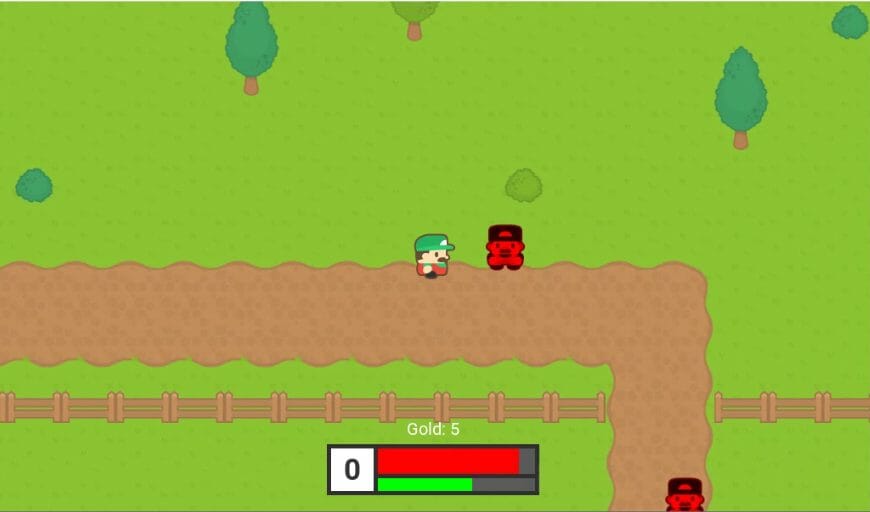
Project Optimization with Nodes and Scenes
Godot is built heavily around the principle of object-oriented design. One of the primary ways it achieves this is with its node and scene architecture. Godot defines every object as a “scene”, and each scene can contain multiple nodes. Godot offers hundreds of nodes that provide base functionality to the game – whether it be collision detection, physics bodies, animations, sounds, etc. Basically, any baseline mechanic you might need to form more complex mechanics can be found as a node.
Due to this, Godot has made a unique system where it is extremely easy to add functions to objects at a very primitive level to create complex objects (i.e. “scenes”). This feature also has the benefit of letting beginners have tight control over inheritance between scenes as well as making instances much easier to handle, particularly compared to other engines.
Nodes and scenes are an integral part of this engine, so understanding their function is key to what is Godot.
Multiple Platform Support
Godot allows for deployment to several different platforms, including but not limited to Windows, macOS, Linux, iOS, and Android – all major contenders in the gaming market. Additionally, Godot also allows export for HTML5 for developers who wish to put their games on the web. While Godot does not offer support for consoles at this time due to several complicated factors, such as the console market being fairly unopen, many third-party companies do exist to help support developers who want to port their games to console devices.
Beyond this, Godot also has a robust plugin structure that allows developers to create virtual reality games and limited augmented reality applications as well.
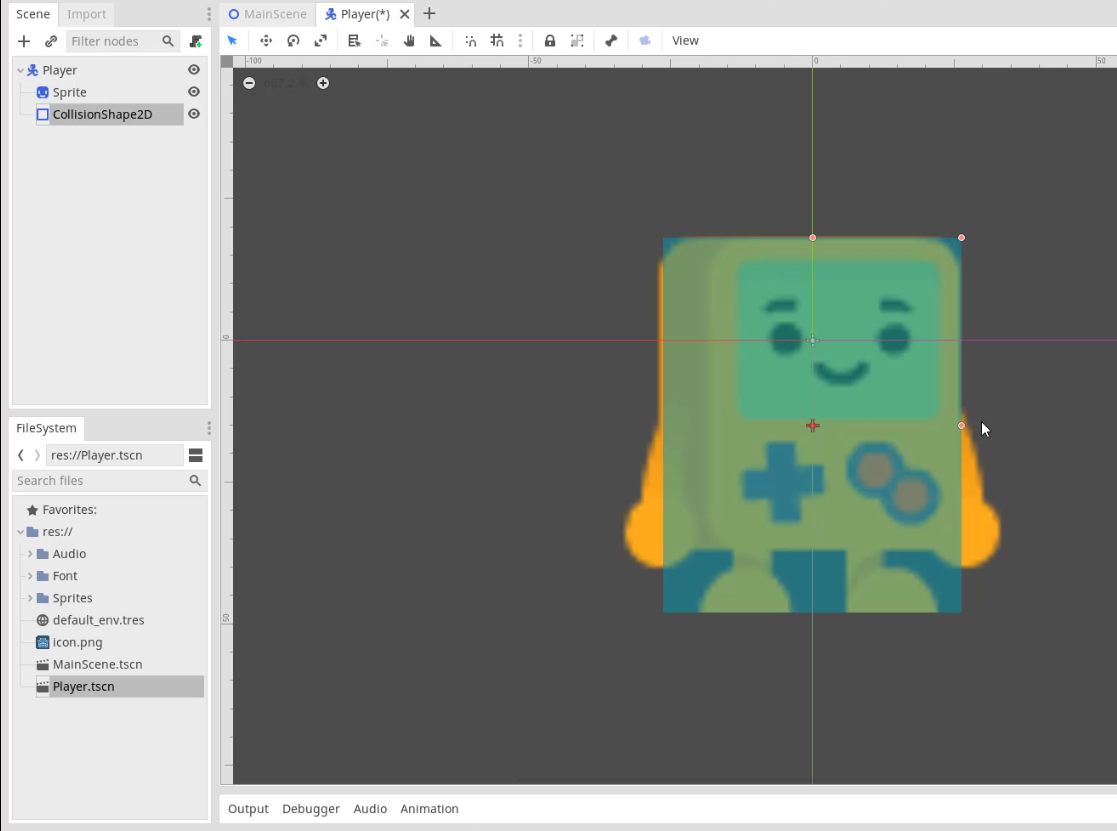
Multiple Language Support
Out of the box, the Godot Engine allows developers to code their games in several different languages – so there isn’t one language answer here for “what is Godot”.
At the top of the list is GDScript, which is a scripting language developed specifically for working with Godot. As it was designed to integrate heavily with the Godot Engine itself, many developers have found it the most optimal for working with the engine. As it is similar in many respects to Python as well, developers also find its cleanliness and human readability a plus when developing with the engine.
For those who prefer not to code from scratch, Godot also comes with a visual scripting tool. This tool was designed to work extremely well with its node architecture, meaning non-programmers and beginners can easily use the drag-and-drop code blocks to construct their games.
However, for those more skilled, Godot also supports C++ and C# without much hassle as well – offering developers plenty of options. In addition to these two, Godot’s GDNative API also supports limited language binding, and some developers have found the ability to use languages such as Ruby or R with the engine.

Animation System
Godot offers a robust set of tools for animation. Particularly for 2D, the engine comes with tools to allow developers to rig their 2D graphics and animate their graphics with full IK bone support. However, the engine also supports imported 3D animations as well as 2D sprite sheets. Regardless of the source, the Godot Engine also comes with various animator tools to help developers trigger and transition animations when needed.
Open Source
Godot is an open-source engine, meaning the Godot source code for the engine is publicly available (in this case, through a permissive MIT license). As such, developers with Godot are free to not only distribute the engine as they see fit, but also modify the engine in various ways without constraints.
This also means the engine is community-driven, and developers are free to contribute improvements to the engine code and offer experiences and tools that extend the engine in unique, robust ways. Plus, this means the engine is completely free in itself to use.
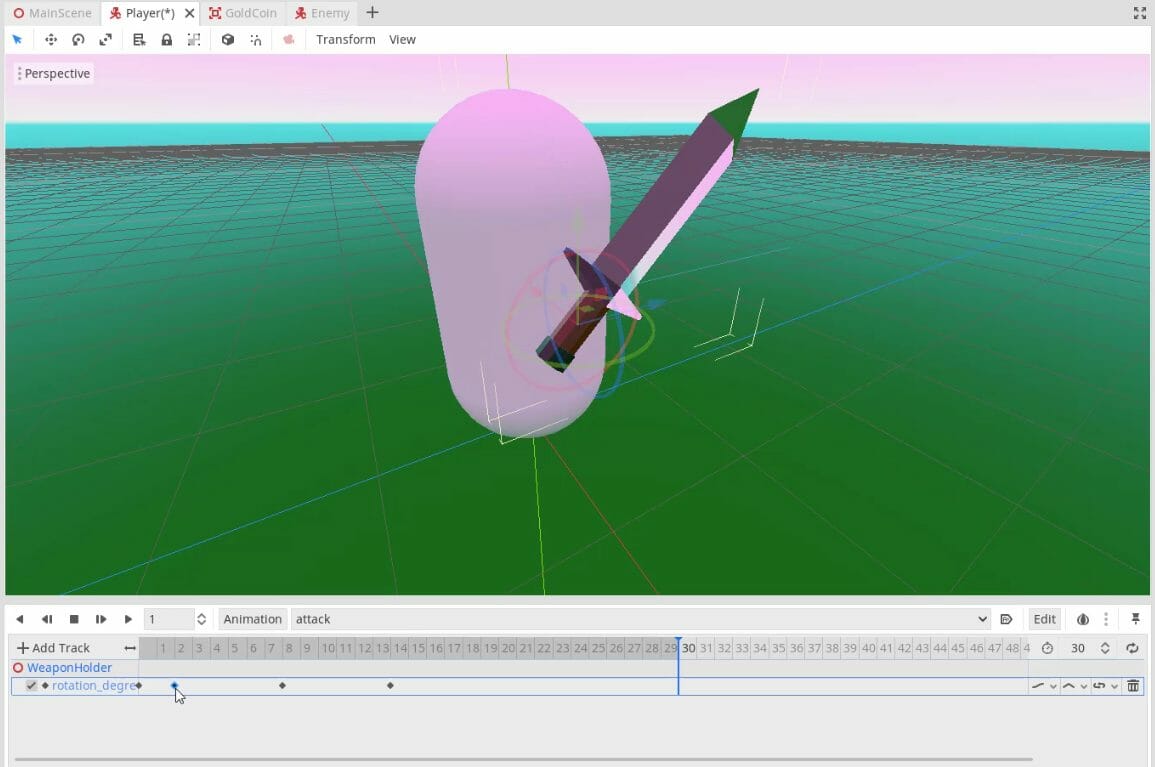
What Can Be Made with Godot?
At this point, you should have a solid understand of the technical aspects and be able to answer what is Godot from that standpoint. However, these is still another facet to understand.
If you can dream it, the Godot Engine can probably help you make it. This includes FPS games, RPGs, strategy games, simulation games, turn-based deck builder games, and beyond. However, the best way to see what Godot is capable of is to check out some of their own developer showcases below of current and upcoming games – all made by developers just like you!
Why Choose Godot?
Now that we’ve talked about what is Godot and explored what it can do, let’s jump into the main thing many developers want to know: why should you choose Godot to develop games?
- 1. It’s free. As the engine is open-source, it costs you nothing to obtain or use the engine. Unlike Unity or Unreal Engine where a certain amount of revenue will cost you an expensive license, revenue made with Godot-created games are yours to keep with no strings attached!
- You can edit the engine as you need to. Again, the engine is open-source. So, if the engine doesn’t quite do what you need it to do for your game project, you can edit the engine directly until you can achieve the effect you want. This gives you the freedom you need to develop whatever systems and mechanics are needed without constraints!
- There are few limitations. Outside of performance and console games, Godot has few limitations. You can make games for mobile or even Linux. You can make action RPGs, farming simulation games, RTS games, or even point-and-click games. You can even make animations to just show off your animation skills. Godot doesn’t limit you with the tools they provide, so you can explore your creativity to its limits.
- The 2D Engine is generally considered better than other popular 3D engines. Mentioned above, Godot uses a dedicated 2D engine instead of simply pretending a third axis doesn’t exist. This makes it far more efficient at handling 2D graphics, 2D physics calculations, 2D lighting, and so forth compared to other engines like Unity and Unreal. So, if 2D is your aim, Godot definitely outranks a lot of the competition.

- It’s lightweight. Many engines available are pretty hefty on computer systems, especially when they’re more graphics intense. Godot, however, is extremely lightweight, being less than 100MB. The resources it uses are also limited compared to other engines, meaning it is a fantastic engine choice if you have a low-powered system like a laptop as your only computing device.
- The engine is community-driven. Partly due to its open-source nature, Godot has attracted a dedicated following. Not only is there a steady stream of developers contributing to the engine’s development in the Godot community, but also tons of users who are ready and willing to answer questions and provide support as you build your game. There are also plenty of tutorials available as well to help users get started with building their own games.
- It’s beginner-friendly. Godot offers several tools to make game development very easy for beginners – whether that’s thanks to their old Godot visual scripting tools, GDScript’s readability, it’s easy to understand nodes to add functions, or so forth. Whether you’ve created a game before or not, Godot is easy to jump into. Even experienced developers often use Godot to prototype game mechanics simply due to how easy the engine is to use!
- Godot has strong version control support. Whether you’re using something popular like Git or other version control systems, Godot was made to be extremely compatible with a simple file setup. This means you can backup your various versions and not have to worry if you break something during the development process!
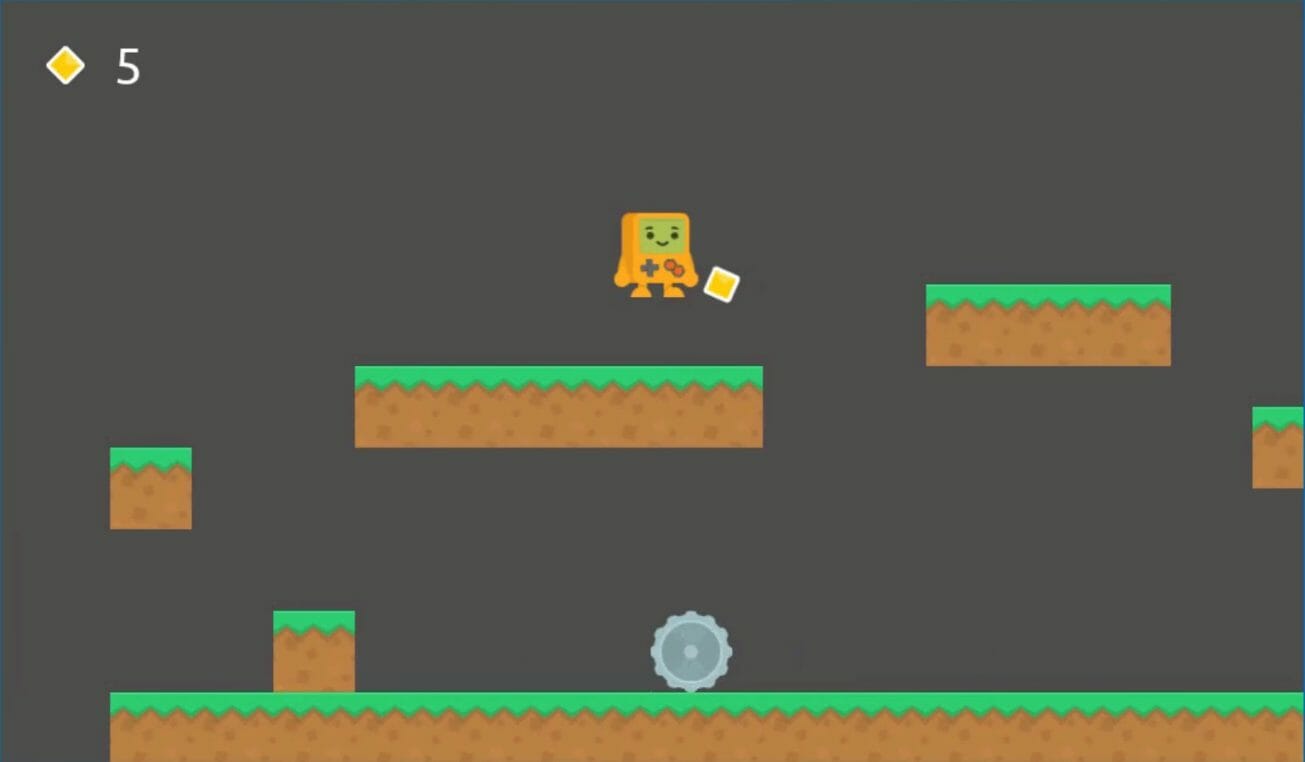
How to Learn Godot
As we draw to a close in our understanding of what is Godot, you might be interested in Godot after all is said and done. Below, we’ve compiled a list of resources that will allow you to explore the engine further and learn how to use it to create your own game projects!
- Godot Engine Website
- Godot Community Resources
- (Premium) Godot Game Development Mini-Degree by Zenva
- Godot 101 – Game Engine Foundations by Zenva
- Learn the GODOT Game Engine in 50 MINUTES by Zenva
- Godot Tutorials Blog
- Godot Action RPG Series by HeartBeast
- Godot 3 Tutorial Series by Gamefromscratch
- Make your first 2D platformer game IN JUST 10 MINUTES by Eli Cuaycong
- Godot 3 Tutorial Series by BornCG
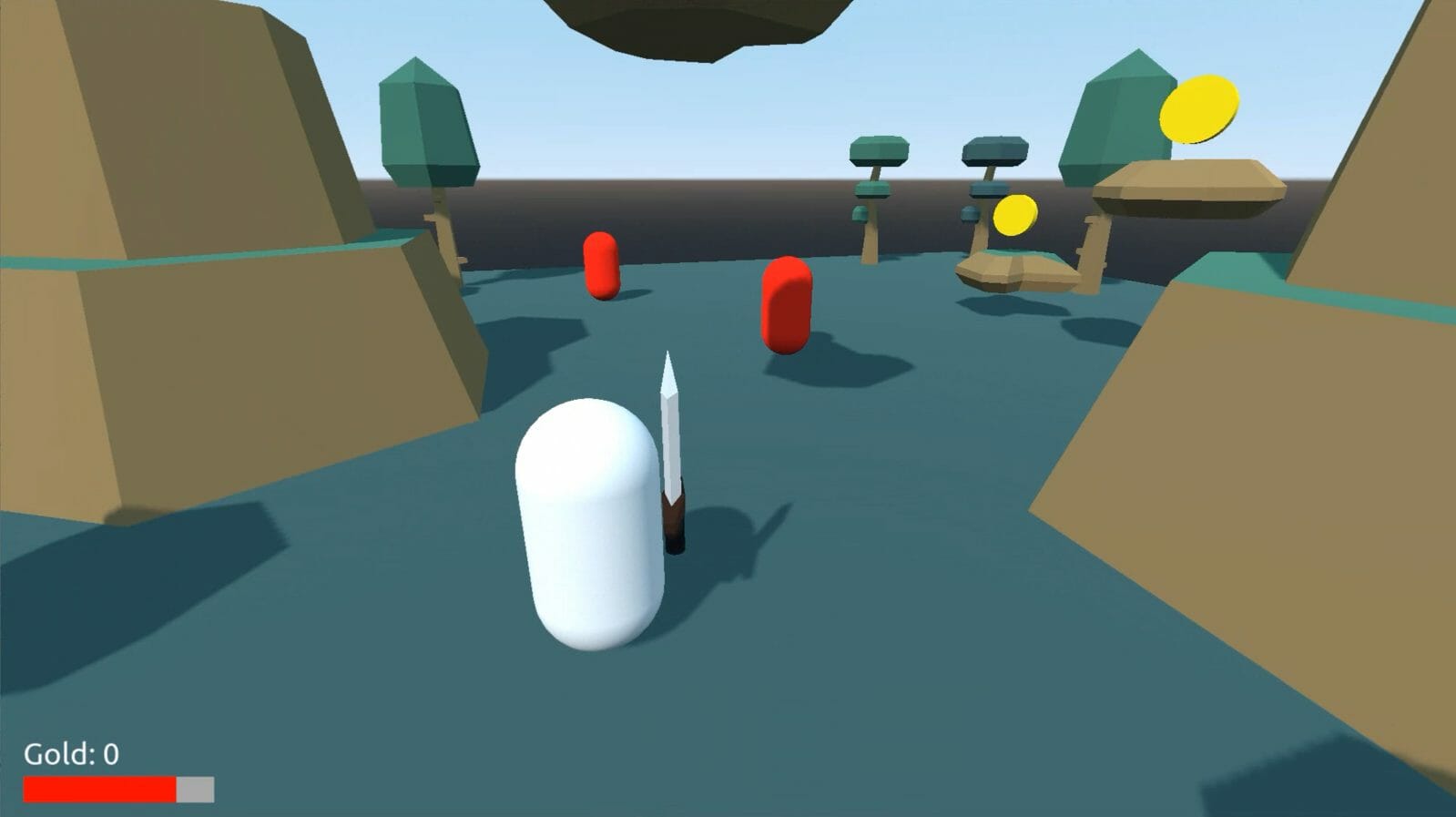
What is Godot? – Parting Words
We’ve only just grazed the surface on answering what is Godot here. However, hopefully you should have a much better understanding not only of what benefits the engine offers, but also how you might learn to utilize those benefits for your own game projects. Whether you’re looking to build some exciting 3D action RPGs or some simple 2D platformers, Godot is able to easily cater to your project needs. This is not to mention it is a great choice for beginners as well given how the engine has organized functionality into nodes for easy access.
As you navigate your game development journey with Godot, you might find resources like the Godot 4 Game Development Mini-Degree and Godot 3 Game Development Mini-Degree incredibly valuable. These comprehensive curriculums guide you through diverse aspects of building both 2D and 3D games, from the basics to advanced topics like developing your own portfolio of real projects. Catering to beginners and more experienced developers, they leverage the versatility, power, and simplicity of the Godot engine, thus providing immersive, hands-on learning experiences.
There is a lot to be had with this amazing tool, so get out there, make some games, and show just what you can do as a game developer!
Did you come across any errors in this tutorial? Please let us know by completing this form and we’ll look into it! FINAL DAYS: Unlock coding courses in Unity, Godot, Unreal, Python and more.
